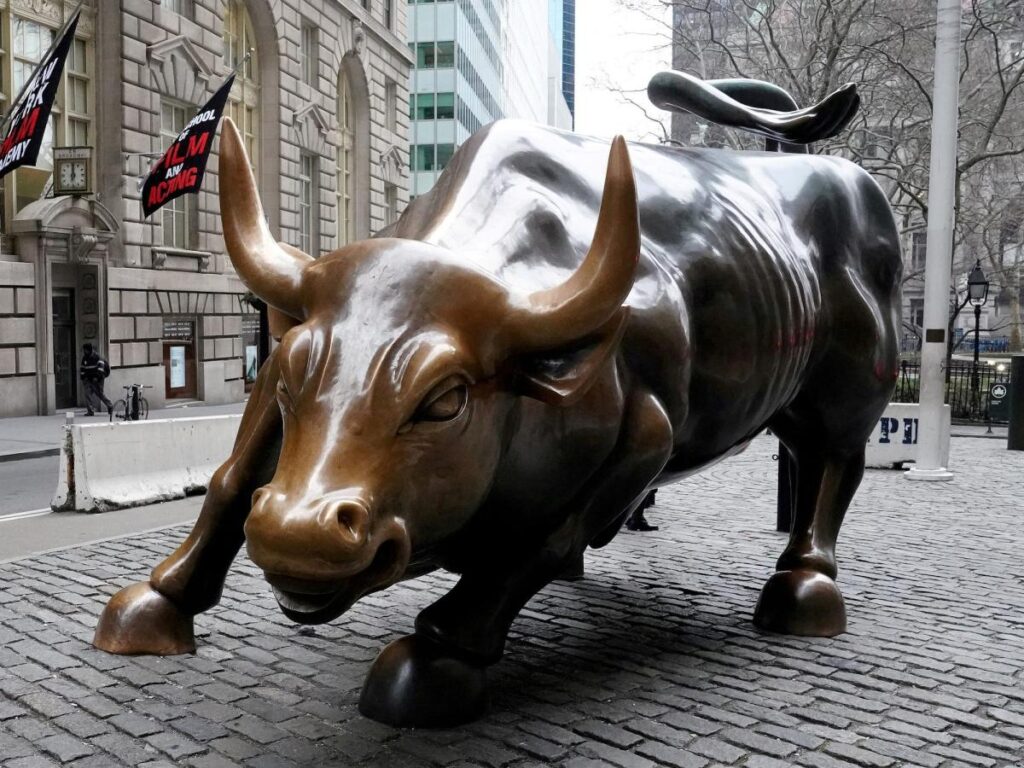-
The S&P 500 is fresh off its worst weekly decline since March 2023.
-
But Deutsche Bank is offering four reasons to stay positive even as recession fears flare.
-
The firm says the narrowness of the stock sell-off is one reason to not overreact.
It’s an uncomfortable time for equity investors, with the S&P 500 fresh off its biggest weekly decline in 18 months.
Although the Federal Reserve is on the brink of long-awaited rate cuts, concerns have crept into the market that the economy is at risk of a sudden unpreventable softening. Deutsche Bank cites those fears as having fueled last week’s equity-market jitters.
The firm also notes that downturns have historically offered little warning, even when conditions seem fine, and says August’s disappointing jobs data provided little security.
With that all established, the firm says there are still five reasons for investors to feel optimistic about the economy and road ahead.
-
Job growth remains stable
Declining labor data has fractured faith in a soft landing, with Wall Street concerned that a jobs-led slowdown signals a broader downturn ahead.
But the perceived decline in job growth isn’t as noticeable as some might lead on, Deutsche said.
Although payrolls data between April 2023 and March 2024 was lowered 818,000 last month, this downside revision is much more benign when spread out, Deutsche noted:
“We’ll have to see the full monthly breakdown of that, but it actually means the apparent decline in job growth is less severe once that is accounted for. So the path of payrolls is somewhat flatter than it appears,” analysts wrote.
The bank said that if these revisions were spread evenly throughout the year, three-month average nonfarm payrolls would remain virtually flat since November 2023.
-
The stock market’s decline has been narrow
The market’s opening performance last week may have spooked investors, but the plunge was not shared equally among sectors, Deutsche noted.
Although the S&P is down 4.25% since August’s close, the popular Magnificent 7 stocks suffered a broader a 5.58% drop. This cohort comprises large-cap names that have soared when risk-on sentiment was stronger.
But with interest rate cuts ahead and recession fears in the air, investors are more likely to reposition.
In this context, Deutsche cited that Bloomberg’s 60:40 bond portfolio fell less than 2%, having reached an all-time high on Friday. This could indicate a rebound in fixed-income, as investors gear up for looser borrowing costs.
-
Rate cuts are on the horizon
All of Wall Street appears to be bracing for the Federal Reserve to lower rates at its policy meeting next week. The impact of this is already being felt, Deutsche said.
“The US 10yr Treasury yield closed at 3.71% on Friday, the lowest since June 2023. And the effects of lower yields are already filtering through into the real economy,” analysts wrote. “For instance, data from the Mortgage Bankers Association shows that a 30yr mortgage rate is currently at 6.43%, the lowest since April 2023.”
Of course, rate cuts could be perceived as a sign that the Fed is racing to stop a recession, but Deutsche sees no sign of this among other central banks
Globally, most have delivered a limited 25-basis move, an unlikely move if there was widespread economic alarm.
-
Recession indicators: Not what they were
Deutsche also pointed out that several indicators have been flashing warnings of an impending recession, though a cooldown is yet to show. This has stirred debate among analysts for months now, with a number questioning whether these guaged are trustworthy in the current cycle.
“There’s been a lot of debate as to why this might be, and whether the post- Covid economy is behaving differently somehow. For example, perhaps consumers were cushioned by the pool of excess savings built up in the pandemic,” Deutsche said. “But whatever the reason, this shift in how the economy has behaved relative to prior cycles is making it more difficult to rely on these leading indicators.”
Examples include the Sahm Rule, which signals a recession when the three-month moving average in the unemployment rate climbs 0.5% from a 12-month low. Although this recently happened, the model’s own founder dismissed it as a false positive.
Read the original article on Business Insider
Read the full article here

